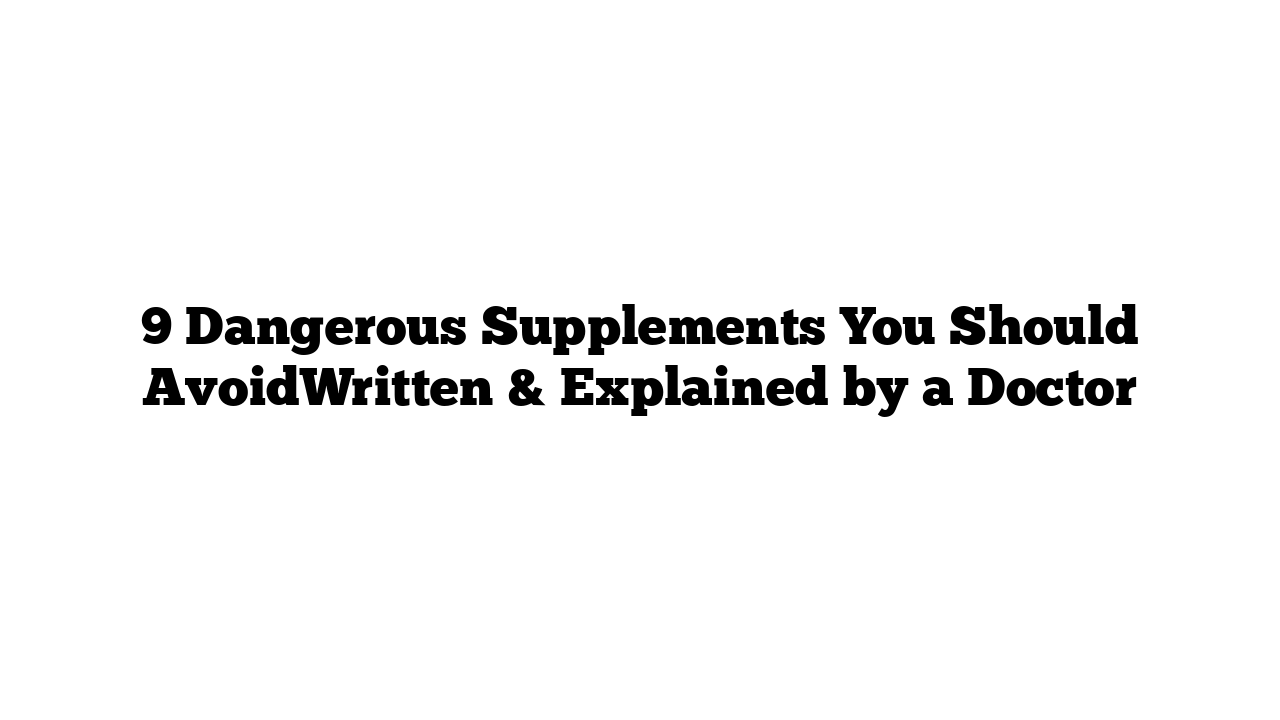Many people believe supplements are a quick path to better health, but certain ones, when taken without proper guidance, can lead to serious health risks. From liver damage to heart arrhythmias, here are nine supplements that can be dangerous if misused.
1. Calcium Supplements
While many turn to calcium supplements for joint or bone pain, these issues often aren’t due to a calcium deficiency. Excess calcium can lead to kidney stones and potentially harm your heart. Without adequate vitamin D and balanced levels of magnesium, phosphorus, and parathyroid hormone, calcium supplements might do more harm than good. Always check with a healthcare provider before starting calcium supplements.
2. Omega-3 Supplements
Omega-3 fatty acids are excellent for heart health, but high doses of omega-3 supplements have been linked to atrial fibrillation, a heart arrhythmia that can cause serious complications like stroke. Getting omega-3s from food sources like fish is generally safe, but consult your doctor if you’re considering supplements, especially in high doses.
3. Turmeric Supplements
Turmeric, known for its anti-inflammatory and antioxidant properties, contains an active ingredient called curcumin. In excessive amounts, curcumin can stress the liver, leading to liver problems. Using turmeric in food is generally safe, but taking high-dose supplements could be risky without medical advice.
4. Caffeine Supplements
Moderate caffeine intake is safe, but caffeine supplements can lead to excessive intake, increasing the risk of heart arrhythmias and anxiety. Exceeding 400 mg of caffeine daily can be dangerous, especially for people with heart conditions. If you take caffeine supplements, be mindful of the dosage.
5. Biotin (Vitamin B7) Supplements
Biotin is widely used in supplements for hair and nails. However, high doses can interfere with lab tests, leading to misdiagnosed thyroid issues and other conditions. Biotin can alter blood test results, so inform your doctor and lab if you’re taking it. Doctors often advise stopping biotin 72 hours before any test to avoid misleading results.
6. Iron Supplements
Iron supplements are commonly used for anemia, but excess iron can accumulate in organs, causing toxicity. Anemia isn’t always due to iron deficiency, and unnecessary iron can cause digestive discomfort, gastritis, and even B12 malabsorption. Only take iron if you’ve been properly diagnosed with iron-deficiency anemia.
7. Green Tea Capsules
While green tea is packed with antioxidants, concentrated green tea capsules can harm the liver, potentially leading to liver failure in severe cases. Stick to drinking green tea rather than using high-dose capsules, which can be risky.
8. Isolated Vitamin E Supplements
Vitamin E is a powerful antioxidant, but isolated high-dose Vitamin E supplements can increase the risk of bleeding. Lower doses found in multivitamins are generally safe, but consult your doctor before taking isolated vitamin E.
9. Vitamin D Supplements
Vitamin D is essential for bone health and immunity, but high doses can cause heart arrhythmias and kidney issues. If you’re taking Vitamin D, regular blood tests are crucial to ensure safe levels. High levels can lead to hypercalcemia, causing kidney problems and other issues.
Takeaway:
While supplements can offer health benefits, they can also pose risks if taken improperly. Before adding any supplement to your routine, especially in high doses, consult a doctor or a registered nutritionist. It’s often better to meet nutritional needs through a balanced diet and to use supplements only when truly needed.
FAQs
- Can I get the same benefits from food rather than supplements?
Yes, whole foods often provide nutrients in a more balanced and bioavailable form than supplements, reducing risks. - How do I know if I need supplements?
Consult with a healthcare provider who can run appropriate tests to see if you have any deficiencies. - Are all supplements dangerous?
No, many supplements are safe when taken as recommended. The risk arises with high doses, overuse, or when taken without medical guidance.
